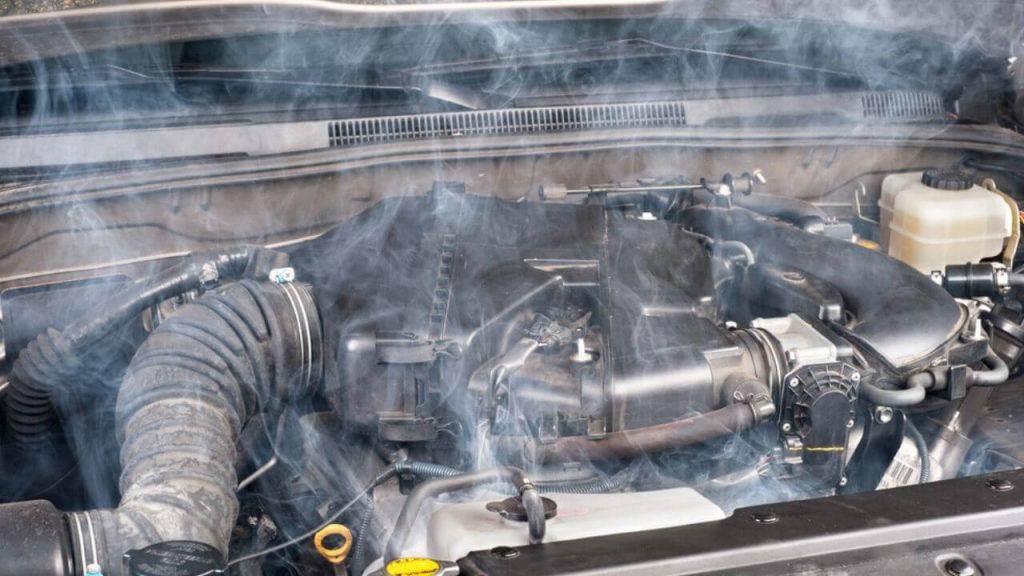Three in ten Nigerians have seen a faulty car with an open bonnet on the road while commuting. You would think that these would help other road users be watchful but Alas! it doesn’t. There are certain things you can do to reduce the chances of your car overheating.
Some reasons why your car is overheating are:
1. There is no water in your radiator: Imagine surviving without drinking water daily? How would you cope? This applies to your car as well. Your car needs water to move as this water affects the radiator and serves as a coolant for your car.
2. Leakage in the cooling system: when there is a leakage in the cooling system of your car, it’s easy for your car to get too hot and this, in turn, leads to overheating. Your cooling system needs to be checked regularly to ensure a fix can be made early enough.
3. Cooling system is not circulating fluid: when the cooling system in your car is not properly circulating fluid, this allows for the car to get too hot in certain areas which leads to overheating. The cooling system is to absorb the heat of the engine and when there is no fluid in the radiator, no heat is being absorbed.
4. Low oil in the engine: There has to be oil in the engine for the engine to keep running smoothly.
5. The engine fan stopped working: Let’s take this fan literally. If there is no proper ventilation in a place then the whole place gets hot and this applies to your car engine as well.
All of these things work hand-in-hand to ensure that your car does not need surprise repairs. Avoiding surprises from your car reduces repairs that you make.
Tips to prevent Car Overheating
You can prevent your car from overheating by:
1. Always having water in your radiator: Not having water in your radiator increases the risk of your vehicle overheating as there’s no fluid being circulated in the engine to help reduce heat.
2. Servicing your car at least once in two months; when your car is serviced, an oil change is done. If your car is serviced then you can avoid overheating.
3. Checking your fan belts regularly: torn or broken fan belts cause heat in the engine as there is no means of cooling down the engine while it is running.
4. Checking your Thermostat regularly: The thermostat keeps the coolant from entering the engine until the engine has warmed up. This means your car can reach operating temperature faster. However, if the thermostat is broken, it may not open and let the coolant flow in when it needs to.
5. Checking your coolant level regularly: Check your vehicle’s coolant levels on a consistent basis. Store an extra bottle of new antifreeze and a gallon of water in your trunk. Monitor your car’s thermostat as you’re driving. Do not overuse the car’s air conditioning on extremely hot days. Help cool the engine by running the heat at the first sign of overheating. Refer to the vehicle owner’s manual to stay up-to-date on coolant service flushes
6. Avoiding thermostat failure: Like the thermostat in a home, the thermostat in a vehicle is needed to regulate engine temperatures. A thermostat failure may cause harm to the engine by not allowing the coolant to flow as intended by the vehicle manufacturer. Issues with the belts and hoses. If coolant hoses are leaking, blocked or ruptured, or if the belts are worn out or frayed, their purpose of maintaining air and coolant flow to and from the engine and related systems will be limited and may lead to unexpected engine damage.
Here are a few steps you can take to fix a car that is overheating:
1. Turn off your engine, open your bonnet and get some fresh air for it, let it cool down. This might take up to an hour. You have to be patient and give your car time to recover.
2. Get a rag and open the radiator carefully to avoid hot water splashing on your face.
3. Ensure that the engine has cooled down to an extent then slowly and carefully begin to pour water into the radiator.
4. Keep pouring water until there is enough water in the radiator.
Voila! You have just repaired your car without any cost and your car is ready to be on the move again.
